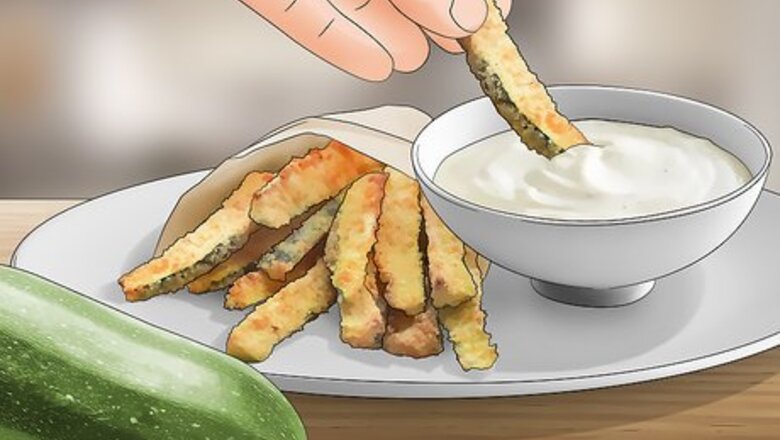
views
Making Nutritious Choices
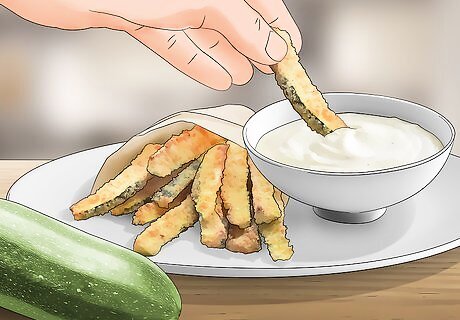
Choose vegetable-based snacks. Vegetables are low-calorie, low-fat, and naturally filling snacks. They are high in fiber and potassium and can help reduce your risk for various conditions. Try mini carrots, snap peas, marinated jicama sticks, fresh pea hummus, or parmesan-crusted zucchini fries.
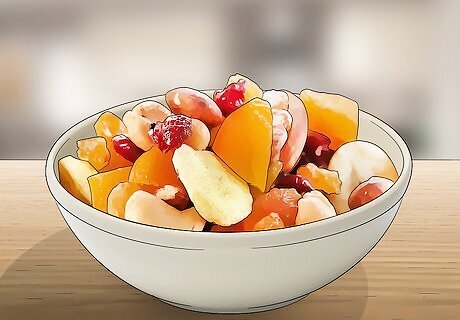
Choose fruit-based snacks. Fruit offers a nutritious option to curb your sweet tooth. They are self-packaged, easy to take on-the-go, and great for busy people. Try apples, bananas, raisins, fruit leather (with no added sugar), or grape tomatoes.
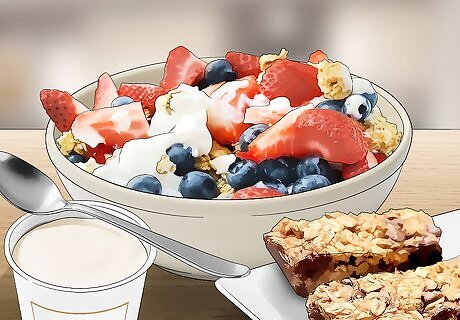
Choose snacks that are high in protein. Protein is an essential part of a healthy diet. It works to build tissue, muscle, and bones, and slows digestion, which keeps you fuller longer. Foods high in protein include fish and chicken, beans and legumes, nuts, kale, and whole grains. Try low-fat or non-fat greek yogurt with granola and fruit, hard-boiled eggs, Justin’s peanut butter packets, cheese sticks, edamame, or whole-grain protein bars.
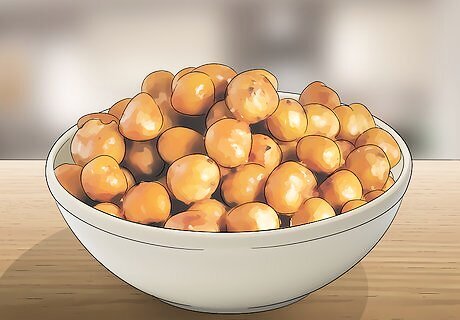
Choose snacks that are high in fiber. Among many health benefits, fiber-based snacks are very filling in small quantities. Foods high in fiber include oats, citrus fruits, beans, barley, whole-wheat flour, potatoes, and bran. Try spiced chickpea nuts, pumpkin seeds (still in the shell), an almond-honey power bar, or a cranberry-nut mini loaf with flaxseed.
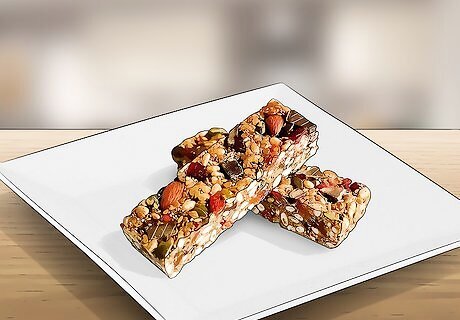
Don’t exclude sweet snacks. Healthy doesn’t mean sweet-free. If you love dessert, make sure to incorporate something sweet. A few healthy ideas include fruit crumble muesli bars, nut butter brownies or the three-ingredient brownie, apple cinnamon yogurt bites, and strawberry oatmeal bars.
Limiting Calories
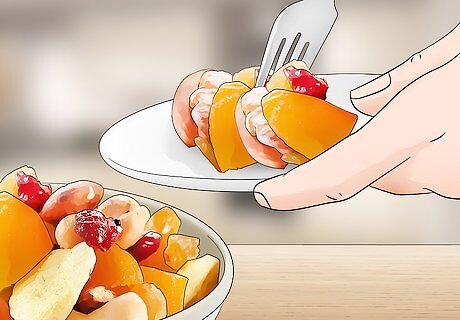
Consider your portion size. Too much of a good thing can be harmful and overeating any type of food is unhealthy. Choose snacks in smaller portions that pack a punch. Snacks high in fiber and protein are more filling and have fewer calories.
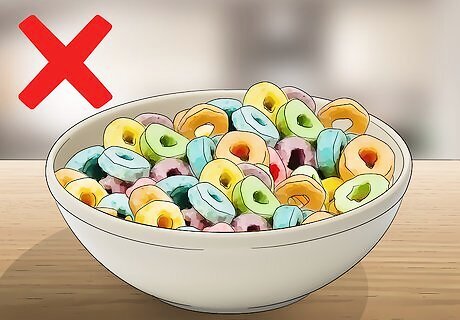
Avoid processed and packaged snacks. These are full of empty calories and have a high amount of refined sugar and flour, fat, and sodium. They can also lead to fat gain, type 2 diabetes, fatigue, and food addiction.
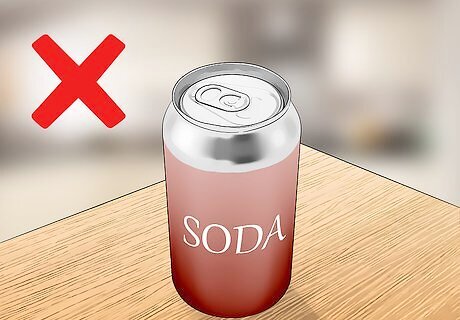
Avoid drinking your calories. Soda, juice, and smoothies are chock full of sugar. Limit or exclude soda completely. Make or buy all-natural juice that has no added sugar. Try making your own smoothies by mixing healthy ingredients such as blueberries and spinach, strawberries, bananas, and oatmeal, or peanut butter and almond milk.
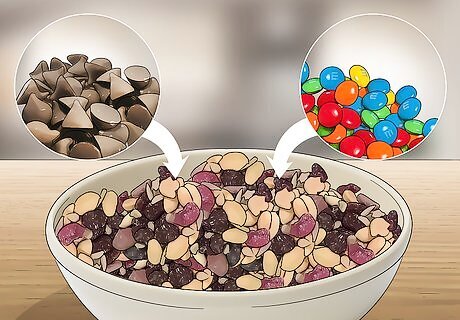
Mix healthy sweets with healthy snacks. Enjoying your sweets alongside filling and healthy foods reduces your overall sugar intake. Trail mix with M&M’s or chocolate chips, yogurt or chocolate covered nuts, or a berry mix with a sprinkling of brown sugar or all-natural honey are great options.
Shopping for Snacks

Create a shopping list. Write down a list that eliminates unhealthy snacks and incorporates healthy snacks you want to try. Do your best to stick to the list, while also keeping an open mind to trying new things.
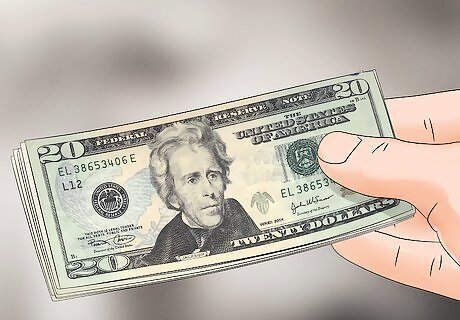
Be prepared to spend more money. The unfortunate truth is that organic, sugar-free, and low-fat items are generally more expensive. If you rely on fresh fruits and vegetables, you may find that you’re shopping more frequently and having to replenish food items in larger quantities.
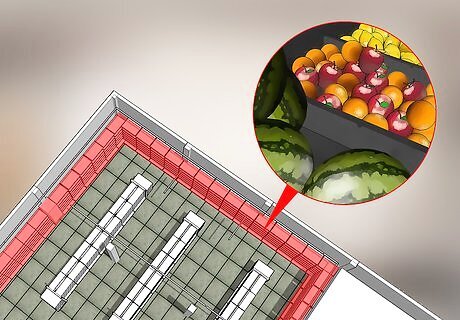
Keep to the outer rim of the grocery store. This is where fresh fruit, vegetables, dairy, and fresh grains are stocked. The inner aisles carry processed and packaged foods such as potato chips, cookies, and frozen snacks. Health food stores offer healthy options throughout the entire store. Feel free to wander unhindered!
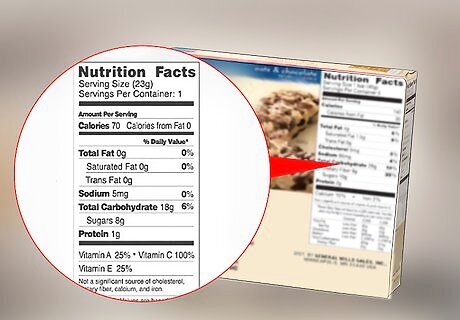
Read and compare the labels. If you want a packaged snack, make sure to read the ingredients on the label. A label that claims it has all-natural ingredients does not always mean it is a healthy choice. A common example is all-natural fruit juice, which is actually high in sugar.
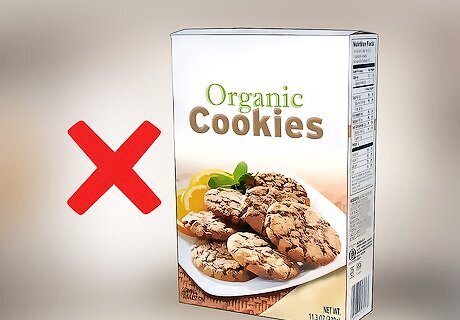
Avoid indulgent purchases. Organic may be healthier, but it can still be an unnecessary and indulgent snack. Choosing a package of cookies just because they are organic will do nothing to improve your snacking habits. Stick with healthy food choices and avoid purchasing items that you can easily do without.












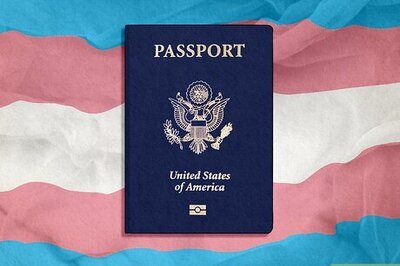



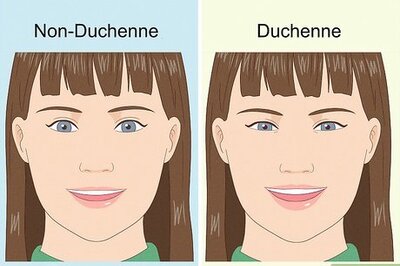


Comments
0 comment